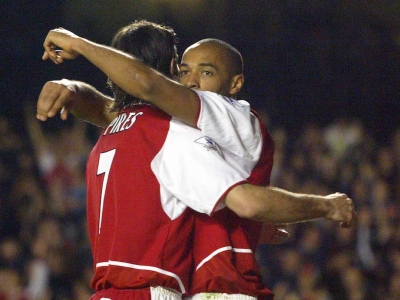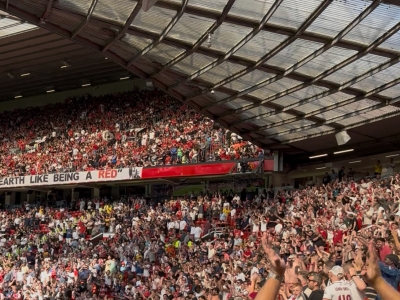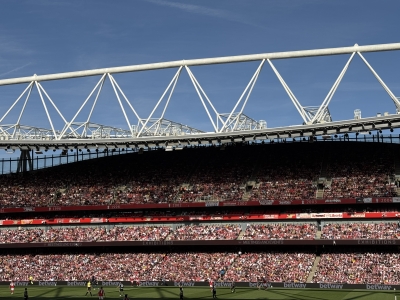When you think of football, you likely think of last-minute winners, roaring crowds, or moments of genius from stars like Messi or Haaland. But behind all that magic lies a world of numbers, ledgers, and regulations—none more debated than Financial Fair Play (FFP). If you're browsing through dbbet or checking match insights via betting sites in India, you've probably heard about clubs being "charged" or "deducted points" under this mysterious system. So, what is financial fair play, and why does it spark such intense debate across footballing circles?
At its heart, financial fair play was introduced to stop clubs from spending recklessly beyond their means. The basic rule? Clubs can't lose more than £105 million over a rolling three-year period. Seems simple. But football, as ever, is anything but.
Born from Good Intentions
FFP—officially the "Profitability and Sustainability Rules" in the English game—was born in 2013 with an honourable goal: stop clubs from drowning in debt to chase short-term glory. The Premier League saw rising concerns as owners threw money at squads like it grew on trees, creating a financial arms race that smaller teams couldn’t hope to keep up with.
Take the story of Fulham under Mohamed Al Fayed. He poured in around £250 million over 16 years, turning a struggling team into a Premier League outfit. But would such a fairytale rise be possible today? Not a chance. With FFP in place, financial injections of that scale would trigger alarms, warnings, and likely penalties. And therein lies the problem—has FFP killed the dream?
The Core Dilemma
FFP sounds like a noble idea. Prevent clubs from overspending and collapsing under the weight of their ambitions. But what happens when the very rules designed to ensure survival instead become roadblocks?
Let’s look at the paradox:
Purpose of FFP
Real-World Outcome
Promote financial sustainability
Clubs still collapse under mismanagement (e.g. Bury)
Encourage fair competition
Big clubs pull further ahead due to higher revenue
Punish irresponsible spending
Points deductions lead to relegation, worsening finances
Clubs like Reading, Derby, Wigan, and Bury faced financial ruin despite FFP being in place. And when they break the rules, the punishment—points deductions—only pushes them closer to the brink. Imagine being fined for not paying your rent, and then being locked out of work.
The Revenue Gap Problem
Here’s where things get messier. FFP doesn’t take into account that not all clubs start from the same position. The so-called “Big Six” clubs (think Manchester United, Manchester City, Liverpool, Chelsea, Arsenal, and Tottenham) rake in huge commercial revenues. They sell millions of jerseys, attract global sponsors, and pocket huge Champions League paydays. Smaller clubs? Not so much.
So, when FFP limits spending based on income, the rich can simply spend more—legally.
According to Deloitte, two-thirds of Premier League revenue is controlled by six clubs. That allows them to invest far more in wages, facilities, and youth development—all within the rules. So what is FFP in soccer, really, if not a system that locks the gate after the elite have already entered?
Parachutes and Yo-Yos
Things don't get easier when you leave the top flight. The Championship’s FFP rules allow only a £13 million loss over three years—compared to £105 million in the Premier League. That’s an astronomical drop.
To soften the blow of relegation, the league offers “parachute payments,” giving clubs up to £50 million over three years. But not everyone gets them, and for many, it’s still not enough. Fulham, for instance, faced a transfer embargo in 2016 after violating FFP, despite parachute support. The club bounced between divisions for years, earning the unwanted "yo-yo" label.
Division
FFP Loss Allowance (3 Years)
TV Revenue Share
Premier League
£105 million
~£1.7 billion
Championship
£13 million
Fraction of EPL
The financial cliff edge between leagues forces clubs to gamble—spend to survive, risk sanction if they fail.
Creative Accounting and Loopholes
Big clubs, unsurprisingly, have found ways to work around FFP. Long contracts (eight years or more) allow the transfer fee to be amortized over time—meaning the cost is spread across the length of the deal. Chelsea, for example, spent over £1 billion post-takeover using this trick. It was legal at the time, though UEFA has now capped amortization at five years.
Then there’s the ongoing Manchester City investigation. The club faces 115 charges related to breaching FFP rules, including allegedly inflating sponsorship deals. Whether they’re guilty is yet to be proven, but the scale of the investigation highlights the fragility of the system.
Saudi Arabian investment has added another twist. Their clubs are not bound by UEFA or Premier League financial fairplay rules, meaning they can offer players enormous wages, disrupting the squad balance in England. For top clubs, it's a chance to sell fringe players. For smaller clubs, it's a destabilizing force.
Alternatives on the Table
In 2023, after the infamous European Super League attempt, the UK government commissioned a white paper led by Tracey Crouch to look at football governance. Her report slammed FFP as failing to prevent financial mismanagement and proposed salary caps as an alternative.
There are three main ideas:
Revenue-Based Salary Cap – Allows spending in proportion to income.Fixed Salary Cap – All clubs must operate within the same wage budget.Luxury Tax Model – Exceeding a cap results in a financial penalty redistributed to other clubs.
The third seems the most balanced—letting richer clubs spend more but making them pay for the privilege.
Fixing the Root Problem
Rules alone won’t fix football. The owners must be held accountable. A more rigorous “fit and proper” test could prevent future scandals like the one at Reading, where protests erupted over poor leadership. Without safeguards on ownership, financial rules will always be a flawed safety net.
Because at the heart of it all, football is about stories. Leicester winning the title. Luton rising from non-league. Fulham going from 91st to a European final. These aren't just fairytales—they're the soul of the sport. But the more rigid the system becomes, the fewer chances there are for such stories to be written again.
Final Whistle
So, what is financial fair play really? Is it a guardrail protecting football from ruin, or a velvet rope keeping the elite safe from competition? The truth likely lies somewhere in between. FFP was meant to bring order to chaos, but in doing so, it might have strangled the very unpredictability that makes football so beloved. If reform doesn't come soon, the dream might remain just that—for all but a select few.








